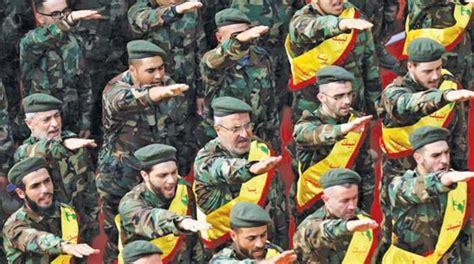
Israel’s message in a Syrian bottle to Hezbollah
Israel has taken out a key Lebanese Hezbollah operative in Damascus, Syria. The strike is meant to send a clear signal to the Iranian-backed terrorist group: Escalate at your own risk.
On July 9, 2024, Hezbollah announced that Yasser Qranbish was killed in an alleged Israeli strike on the Beirut-Damascus highway. In its announcement, the terrorist organization didn’t elaborate on Qranbish’s role in the group, although some have described him as merely a mid-ranking operative involved in transporting weapons.
But understanding who Qranbish was is key to understanding the reasons behind the alleged Israeli strike. His history with Hezbollah extends beyond merely ferreting arms in Syria.
In fact, Qranbish was a former bodyguard for Hassan Nasrallah, the head of Hezbollah. Nasrallah took over Hezbollah in 1992 after Israel killed his predecessor Abbas al Musawi. As the Committee for Accuracy in Middle East Reporting and Analysis has argued, it was Nasrallah who largely made Hezbollah, fashioning it into what one-time U.S. Deputy Secretary of State Richard Armitage called “the A-Team of terrorist groups.”
At present, Hezbollah has more armaments than many European nations, possessing more than 150,000 missiles, many of them precision guided. Further, Hezbollah is a truly global terrorist group. Hezbollah is based in Lebanon and de facto controls the country, but the organization is active on multiple continents, including North and South America.
Hezbollah, which calls for Israel’s destruction, has been firing rockets into the Jewish state for months, leading to a low-intensity war on Israel’s northern front. That conflict, however, has been heating up. Thousands of civilians have been evacuated, and several have been murdered. Indeed, the same day that Qranbish was taken out, a barrage of more than 40 rockets killed two Israelis, a husband and wife, who were traveling in a car in Israel’s northern Nafah Junction.
But with a wider war looming, Nasrallah has remained hidden. For years, the Hezbollah chief has spent most of his time in an underground bunker at an undisclosed location. Nasrallah fears he will meet Musawi’s fate — and for good reason.
If Israel killed Nasrallah, Hezbollah would certainly carry out a massive retaliation. Indeed, after Musawi’s death, the terrorist group bombed an Israeli Embassy in Argentina in 1992 and the AMIA Jewish Community Center in Buenos Aires in 1994, murdering 114 people and injuring hundreds more.
By killing Qranbish, Israel is sending a not-so-subtle message to Hezbollah that escalation is risky, and those risks can extend all the way to the top.
Yet, on another level, the strike is practical, too. Phillip Smyth, an expert on Hezbollah, noted that Nasrallah’s bodyguards and those who have served closely with him “have been key movers and shakers for the group in the region and abroad.” With Hezbollah, “the circle of trust is very real.”
Whether the strike will deter Nasrallah from escalating further remains to be seen. But the status quo in Israel’s north is plainly unsustainable.
Source » washingtonexaminer.com





